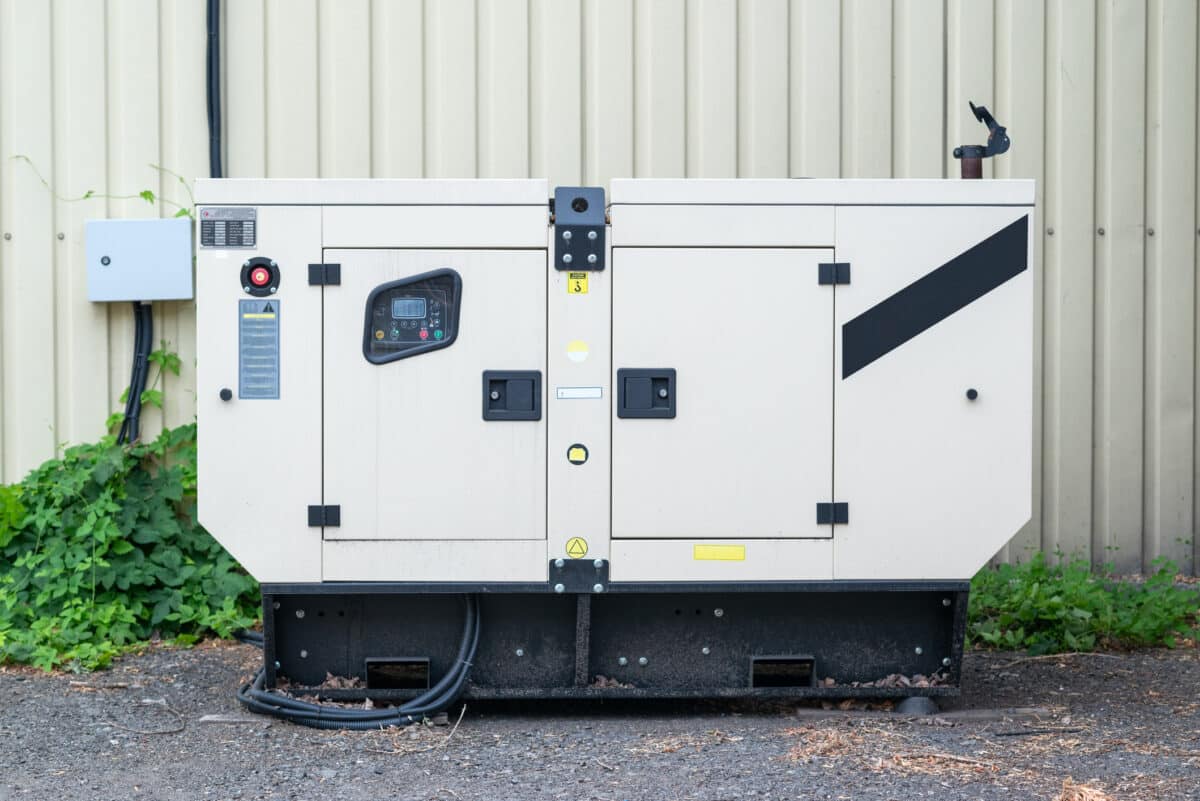How to Choose the Right Backup Generator for Your Home

When the power goes out in Florence, SC, having a reliable backup generator can make all the difference. It’s not just about keeping the lights on; it’s about ensuring your home remains safe and comfortable during emergencies. Choosing the right backup generator, however, can seem daunting with so many options available. Understanding your home’s energy needs is the first step towards making an informed decision.
In Winona, SC, homeowners understand the value of preparedness. A backup generator is a key component of any emergency plan, providing power to essential appliances and systems when it’s most needed. But not all generators are created equal. Selecting one that matches your specific requirements demands careful consideration of size, fuel type, and capacity.
The process of choosing a backup generator should begin with an assessment of your home’s power usage. Knowing which appliances and systems you prioritize during an outage will guide you towards the right size and model. This ensures you’re not left in the dark or overspending on a unit that exceeds your needs. Efficiency and effectiveness should be your guiding principles.
Lastly, consulting with professionals who understand the nuances of backup generators can be incredibly helpful. They can offer insights into the best options for your area, taking into account local weather patterns and power outage frequencies. With their expertise, residents of Florence and Winona can find a backup generator that offers peace of mind, knowing their home is prepared for whatever comes their way.
Understanding Your Home’s Energy Needs
Understanding your home’s energy needs is crucial when selecting a backup generator. Start by listing the appliances and systems you can’t do without during a power outage. This might include the refrigerator, HVAC system, and medical equipment. By identifying these essentials, you can determine the minimum power requirements for your backup generator.
Next, consider the total wattage of these critical appliances. Every device in your home has a specific wattage, and adding these up gives you a baseline for the generator’s capacity. Remember, it’s not just about running everything simultaneously; it’s about ensuring the essentials are covered. This step prevents the frustration of having a generator that falls short during crucial times.
Fuel type is another important factor to consider. Backup generators in Florence, SC, commonly run on natural gas, propane, or diesel. Each fuel type has its advantages and considerations, including availability during emergencies, storage requirements, and cost. Choosing the right fuel type for your backup generator ensures it’s ready to go when you need it most.
Finally, think about the generator’s placement and installation requirements. In Winona, SC, for example, local codes and regulations may dictate where a generator can be placed. It’s essential to consult with professionals who can help you navigate these rules. They ensure your backup generator is not only effective but also compliant with local standards, providing peace of mind during power outages.

Photo from iStock – Credit: sphraner
Types of Backup Generators Available
When exploring backup generator options, it’s important to understand the different types available to homeowners in Florence, SC. Standby generators, for instance, automatically power up during an outage, offering a seamless transition. These units are permanently installed and can run on various fuel types, making them a convenient choice for continuous power. Their capacity to handle a home’s entire energy load makes them popular among residents seeking reliability.
Inverter generators present another option, known for their quiet operation and efficiency. These generators adjust the power output to match the demand, reducing fuel consumption and minimizing noise. This feature is particularly beneficial for those in Winona, SC, where maintaining a peaceful environment is valued. Inverter generators are ideal for powering sensitive electronics due to their stable electricity output.
Solar-powered generators have gained traction as a sustainable alternative, harnessing the sun’s energy to provide power. They operate silently and without emitting harmful gases, making them an eco-friendly choice for environmentally conscious households. While their initial setup cost might be higher, the long-term savings on fuel and the benefit of renewable energy appeal to many.
Lastly, considering a dual-fuel generator offers flexibility in fuel choice, which can be crucial during extended outages where fuel availability might fluctuate. These generators can switch between fuel types, such as propane and gasoline, allowing homeowners to use what is most accessible at the moment. This adaptability ensures that residents always have a viable power source, regardless of the circumstances.
Key Features to Look for in a Backup Generator
When considering a backup generator for your home, evaluating key features ensures you choose a unit that meets your specific needs. One crucial aspect is the generator’s capacity, which should align with your home’s energy requirements. This ensures that your essential appliances and systems remain operational during an outage, providing you with uninterrupted comfort and safety.
Another important feature to consider is the generator’s transfer switch. This component is responsible for automatically activating the generator when power from the grid is lost, ensuring a seamless transition. In Florence, SC, where weather can be unpredictable, having a generator with a reliable transfer switch can make all the difference in maintaining your home’s functionality during severe weather events.
The durability and warranty of the backup generator are also key considerations. Investing in a unit designed to withstand the elements and with a robust warranty offers peace of mind, knowing that your generator is built to last. In Winona, SC, where conditions can vary, choosing a generator that promises longevity and reliability is a wise decision.
Lastly, ease of maintenance should not be overlooked. A backup generator that is easy to service ensures that it remains in optimal working condition, ready to serve your home when needed. Regular maintenance checks can prevent unexpected failures, making it a critical feature for homeowners who prioritize readiness and efficiency.
The Importance of Fuel Type in Choosing a Backup Generator
When choosing a backup generator, the type of fuel it uses is a critical factor to consider. In Florence, SC, natural gas might be readily available, making it a convenient option for many homeowners. However, others might prefer propane or diesel, depending on local availability and storage possibilities. Each fuel type has its own set of benefits, from the ease of access to how efficiently it powers the generator during an outage.
Understanding the implications of each fuel choice on the environment and operating costs is also important. For instance, natural gas generators are known for their cleaner emissions compared to diesel-powered units. Homeowners in Winona, SC, who prioritize eco-friendliness might lean towards solar-powered or natural gas generators. These options not only reduce the carbon footprint but can also offer savings on fuel in the long run.
Accessibility of fuel during emergencies cannot be overlooked. Events like severe weather can disrupt fuel supply chains, making some fuel types harder to procure. Dual-fuel generators offer a flexible solution, as they can operate on more than one type of fuel. This adaptability ensures that your home in Florence, SC, remains powered, even when certain fuels are not available.
Lastly, the cost of fuel and its impact on long-term operating expenses is a significant consideration. While the initial setup for a natural gas generator might be higher, the ongoing costs could be lower than those for diesel or propane, especially with fluctuating fuel prices. Homeowners must weigh these factors carefully, considering both the immediate and future financial implications of their backup generator choice.
Installation Considerations for Backup Generators
When planning to install a backup generator in Florence, SC, considering the installation space is crucial. A generator requires a stable, well-ventilated area to operate efficiently and safely. This space must be easily accessible for maintenance and far enough from the home to reduce noise and exhaust exposure. Consulting with a professional can help identify the best location that meets both safety standards and your convenience.
In addition to space, the installation process involves understanding local building codes and regulations. In Winona, SC, for example, there may be specific requirements regarding the generator’s distance from the property line or the type of foundation it needs. Compliance with these regulations ensures the installation is legal and avoids potential fines. A professional electrician or installer familiar with local codes can guide you through this process, making sure your generator is set up correctly.
Electrical connection is another vital aspect of installing a backup generator. It involves integrating the generator with your home’s electrical system, typically through a transfer switch. This switch is essential for safely transferring power from the utility to the generator during an outage. It’s important to have a qualified electrician handle this step to ensure the system functions seamlessly and safely when it’s needed most.
Lastly, considering the fuel supply and storage for your backup generator is imperative. Whether it’s natural gas, propane, or diesel, ensuring a reliable fuel source is available can significantly impact the generator’s effectiveness during emergencies. For homes in Florence, SC, where natural gas is commonly used, ensuring the generator is connected to the home’s gas line is a key step. For those in areas like Winona, SC, where propane or diesel might be more accessible, arranging for safe and sufficient fuel storage is essential.
Maintenance and Safety Tips for Your Backup Generator
Maintaining your backup generator is crucial to ensure it functions effectively, especially during unexpected power outages. Regular checks and servicing can prevent potential failures when you need power the most. For homeowners in Florence, SC, scheduling maintenance with a professional at least once a year is advisable. This ensures your generator remains in optimal condition, ready to provide reliable energy whenever necessary.
Safety is paramount when operating a backup generator. Always ensure it is placed in a well-ventilated area to prevent carbon monoxide buildup, which can be dangerous. In Winona, SC, installing carbon monoxide detectors near the generator and in living areas provides an added layer of safety. These detectors alert you to any harmful emissions, safeguarding your family’s health.
Understanding the operational guidelines of your backup generator contributes to its longevity and your safety. It’s important to familiarize yourself with the manufacturer’s instructions and adhere to them strictly. Doing so not only ensures the generator works efficiently but also helps avoid accidents that could arise from improper use. Regularly updating your knowledge on generator safety can make a significant difference in emergency situations.
Lastly, storing fuel for your generator requires careful consideration to avoid risks. Ensure that fuel is stored in approved containers and in a secure location away from the generator to prevent fires. For residents in both Florence, SC, and Winona, SC, checking local regulations on fuel storage is essential. Following these guidelines will keep your home safe and ensure your backup generator is always ready for use.
Cost Analysis: Investing in a Backup Generator
Investing in a backup generator is a significant decision that requires careful consideration of both upfront and ongoing costs. In Florence, SC, homeowners must evaluate the purchase price, which varies based on the generator’s size and type. Additionally, installation expenses can be substantial, as they involve professional services for safe and compliant setup. It’s essential to factor in these initial costs when planning your budget.
Running costs are another crucial aspect of owning a backup generator. Residents of Winona, SC, for instance, need to account for the fuel consumption rates of their chosen generator. Whether it’s natural gas, propane, or diesel, the cost of fuel can fluctuate, impacting the overall expense of operating the generator during emergencies. Regular maintenance and potential repairs also contribute to the long-term financial commitment.
The benefits of having a backup generator, however, often outweigh the costs. In emergencies, the ability to power critical appliances and systems can be invaluable. For families in Florence, SC, the peace of mind knowing that their home remains safe and functional during power outages justifies the investment. It’s a safeguard against the inconveniences and potential dangers of being without power.
Finally, when considering a backup generator, it’s wise to consult with professionals who can provide detailed cost analyses. This includes estimating installation charges, projecting fuel costs based on your energy needs, and advising on maintenance expenses. Such expert insights help homeowners in Winona, SC, make informed decisions, ensuring they choose a backup generator that offers the best value for their specific situation.

Photo from iStock – Credit: Tingting Ji
Frequently Asked Questions
What size backup generator do I need?
Choosing the right size backup generator depends on your home’s energy needs. First, calculate the total wattage of essential appliances you want powered. This ensures your generator can handle the load during emergencies. For accurate sizing, consulting with a professional, like those at Mister Sparky, is always a smart move.
How does a backup generator work?
A backup generator kicks in when your main power source fails. It automatically supplies electricity to your home’s critical systems and appliances. This ensures you stay comfortable and safe during outages. By converting fuel into electrical power, it acts as a reliable safeguard for your energy needs.
What are the fuel options for a backup generator?
Backup generators run on various fuels, including natural gas, propane, and diesel. Natural gas offers a convenient option as it connects directly to your home’s supply. Propane, stored in tanks, is ideal for areas without natural gas lines. Diesel generators are known for their efficiency and long-lasting power, making them a solid choice for emergency energy needs.
How much does a backup generator cost?
The cost of a backup generator varies based on size and fuel type. Generally, larger units and those running on natural gas or diesel tend to be pricier. Installation fees also contribute to the overall expense, making professional advice valuable. Mister Sparky offers expert guidance to help you find a cost-effective solution for your home.
What maintenance does a backup generator require?
A backup generator needs regular upkeep to ensure reliability during outages. This includes checking oil levels, replacing filters, and testing the system monthly. Professionals, like those at Mister Sparky, can perform annual inspections to spot any issues early. Keeping your generator in top condition guarantees it’s ready when you need it most.
















